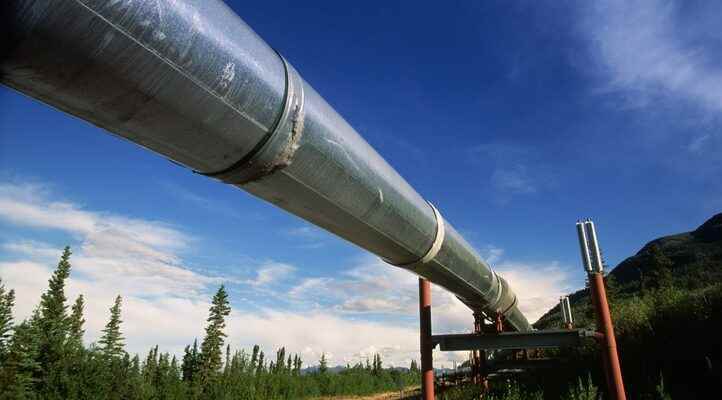The Paris Stock Exchange fell by almost 2% and the euro moved to 20-year lows, weighed down by the risk of an energy crisis in Europe, itself fueled by the postponement sine die the resumption of Russian gas deliveries via the Nord Stream 1 gas pipeline. Futures contracts on the Dutch TTF, a benchmark for gas prices in Europe, soared 30% to 278.50 euros per megawatt hour this morning, thus approaching the historic peak reached at more than 340 euros a little less than two weeks ago.
Around 2:30 p.m., the Bedroom 40 fell by 1.70% to 6,062.84 points in a business volume of 1 billion euros. Elsewhere in Europe, the Dax of the Frankfurt Stock Exchange fell by 2.54%. US markets are closed on Monday for Labor Day, a public holiday in the United States.
Contraction in services in the euro zone
The market also digests the decline in activity in services in the euro zone last month, the PMI index established by S&P Global falling by 1.4 points to 49.8, its lowest level for 17 months. A figure below 50 reflects a contraction in activity. Chris Williamson, Chief Economist of S&P Global, notes that: “ Testifying to the continuing very strong inflationary pressures in the region, the prices paid and invoiced by companies continue to increase at rates never reached before the pandemic. The decline in inflation rates continued in August, however, suggesting that they may have plateaued. »
The euro briefly dipped below $0.99 on Monday for the first time since 2002. The European currency’s slide was triggered by Moscow’s decision to cut off gas to Europe in response to the proposed G7 finance ministers to cap Russian oil prices from December to reduce Russia’s ability to finance its war in Ukraine.
The intensification of the energy crisis at the approach of winter is weakening the economies of the euro zone, prompting several countries, including Germany, to adopt new anti-inflation measures, at a time when the surge in prices at consumption makes a 75 basis point rise in rates by the European Central Bank, which will announce its monetary decision on Thursday, almost inevitable.
Liz Truss will succeed Boris Johnson
OPEC+ member countries must also decide on their production levels for the month of October. The ministerial monitoring committee recommends a reduction in its production target of 100,000 barrels per day from October, according to sources close to the cartel quoted by Reuters. The barrel of Brent from the North Sea is up 2.6% to 95.46 dollars. TotalEnergies earn 3% and Vallourec 1.5%. Conversely, the automotive sector is particularly weak. Faurecia and Valeo fell by nearly 9%, while containment measures were imposed in Shenzhen, where the two groups have R&D centers, while health restriction measures were extended in the industrial hub of Chengdu. Renault and Stellantis fell by 5.4% and 4.6% respectively.
In the United Kingdom, Foreign Secretary Liz Truss won the vote organized by the Conservative Party to appoint Boris Johnson’s successor as Prime Minister. She is ahead of her rival and former finance minister Rishi Sunak with 81,326 votes, against 60,399. Liz Truss will travel to Balmoral Castle on Tuesday to meet the Queen there before returning to London to address the country and present her government. Boris Johnson will deliver a farewell speech from Downing Street tomorrow morning.
